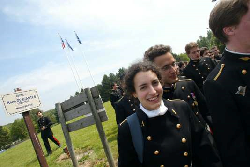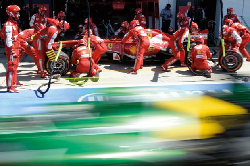January 2018 Research, Science and Knowledge
Read the articles selected in January 2018
How to prepare students for the complexity of a global society
By Anthony Jackson & Andreas Schleicher
Source: http://www.oecd.org, 22 January

Volatility, uncertainty, complexity, and ambiguity characterize the world we experience. A global competence education is what helps to solve today’s problems through critical understanding and sensitivity, which promotes respect for other cultures and awareness of the own identity.
Read more:
https://oecdeducationtoday.blogspot.it/2018/01/how-to-prepare-students-for-complexity.html
Reminder: Help EUA advocate for Erasmus+ grants for international talent with protection status
Source: http://www.eua.be/, 18 January
Eua calls its Members and partners for supporting a draft proposal requiring to the EU to establish a specific Erasmus programme for scholars and students with protection status at European higher education institutions, without diminishing the intra-European Erasmus grants.
Read more:
Les élèves des grandes écoles veulent un emploi pour être “utiles” et servir l’intérêt général
By Adrien de Tricornot
Source: Le Monde, 23 January

The scholars of the French schools desire a job which could make better the society and the life of people and have a critical attitude toward the traditional management, which they consider less ethical and responsible while aspiring to innovate the economy.
Read more:
Top universities with the best student –to-staff ratio 2018
By Seeta Bhardwa
Source: Times Higher Education, 16 January

The student-to-staff ratio, as a premise to a favorable learning environment, is part of THE World University Rankings. Among the first 100 universities, Japan dominates the list, followed by the US, while UK universities are away from the top 100.
Read more:
Le doctorat, enfin un passeport pour l’entreprise?
By Yann Verdo
Source: Les Echos, 12 January
Within the enterprises, the Ph.D. has been long considered as a handicap rather than a sign of excellence, but the innovation, which is the key to access and survival in the market requires properly a training to research which concerns not only the exact sciences. In the meantime, the public function still shows resistance.
Is the drive for efficiency setting researchers up for a fall?
By Simon Baker
Source: Times Higher Education, 16 January

European universities struggle to make the most efficient use of public resources, although in all countries they call for investing in research and promoting innovation. International rankings allow comparing constrained budgets with research productivity.
Read more:
https://www.timeshighereducation.com/news/drive-efficiency-setting-researchers-fall
Study on governance and management policies in school education systems
Source: the European Commission
Policymakers have to test the effectiveness and efficiency of their reforms, especially with regard to disadvantaged pupils. A system of quality assurance and mechanisms of accountability over performance data, associated with a greater autonomy of the schools, have a positive impact on quality.
Is labour market demand keeping pace with the rising educational attainment of the population?
Source: http://www.oecd.org, 21 December
Across OECD countries the educational level of people is improved. Whereas an upper secondary qualification makes a big difference in the labour market, relative and variable employment data over graduates may mask a decline in the marginal value of higher education and qualification mismatches.
Strenghtening the effectiveness and sustainability of international research infrastructures
Source: http://www.oecd.org
This report analyzes the challenges addressed by research infrastructures in their entire cycle of activities, identifying strategies that can boost their capacity to maintain a high level of competitiveness over their expected lifetime.
Will global online higher education ever take off?
By Christopher Ziguras
Source: University World News, 19 January
Despite the advantages for students who cannot afford to study abroad, the scale of fully online provision of higher education courses is still modest, because of a still widespread prejudice against the quality of online learning and for its prohibitive cost.
Read more:
http://www.universityworldnews.com/article.php?story=20180116150633478
Preparing our youth for an inclusive and sustainable world
Source: http://www.oecd.org/
In 2018 PISA will include in the assessment of student skills, besides literacy, mathematics, and science, also the global competence, the capacity to understand and respect different perspectives and views and find their own place in the world, taking action responsibly and sustainably with the others.
Read more:
http://www.oecd.org/pisa/Handbook-PISA-2018-Global-Competence.pdf
Public Funding Observatory Report 2017
Source: http://www.eua.be
The data collected in this report show the evolution of public funding to European universities since 2008, adjusted for inflation, economic growth and compared with student enrolment. The trends tracked in different systems prevent the development of a harmonious European knowledge economy.
Oxford joins university group aiming to tackle Europe’s woes
By Richard Adams
Source: The Guardian, 1 January
In the wake of the Brexit crisis, a group of leading universities including Oxford and St Andrews has conceived a scholar’s programme for postgraduate researchers to overcome the absence of leadership in Europe and the sunset of the values of the Enlightenment and the scientific revolution that led to Brexit.
Court overturns university admissions restrictions regime
By Michael Gardner
Source: http://www.universityworldnews.com
The German Federal Constitutional Court has recently ruled that the present numerus clausus system, regulating admissions to university courses, is unconstitutional, but it is not unconstitutional any form of restriction to study programmes, that has to take account of the available places.
Read more:
http://www.universityworldnews.com/article.php?story=20180109084431688
A global recognition convention for academic mobility
By Stig Arne Skjerven & Einar Meier
Source: http://www.universityworldnews.com/, 15 December
The growth in tertiary students mobility across borders reported in the last years calls for an international framework for the legal recognition of study qualifications. UNESCO is preparing the first Global Convention that will allow a global cooperation in higher education.
Read more:
http://www.universityworldnews.com/article.php?story=2017121312573374
Info
- Pubblicato il : 05/02/2018 Modificato il : 04/04/2019
Allegati
- Le doctorat, enfin un passeport pour l'entreprise pdf
- Strenghtening the effectiveness and sustainability of international research infrastructures pdf
- Is labour market demand keeping pace with the rising educational attainment of the population? pdf
- Study on governance and management policies in school education systems pdf
- Europe s woes pdf
- Public Funding Observatory Report 2017 pdf

